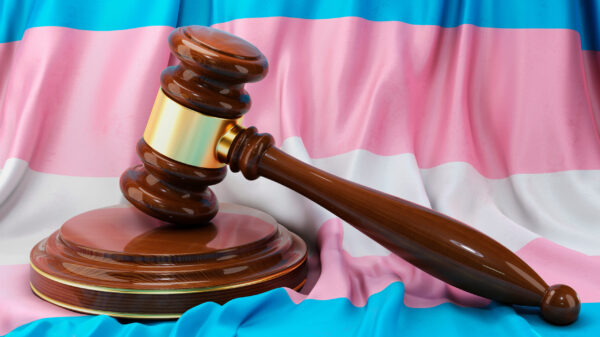Republican Wes Allen, R-Troy, filed a bill to prevent doctors from providing hormone replacement therapy or puberty suppressing drugs to people younger than 19 who identify as transgender.
HB303, the Alabama Vulnerable Child Compassion and Protection Act, would make it a Class C felony, punishable by up to 10 years in prison, for doctors to prescribe puberty-blocking medications or opposite gender hormones to minors. Allen’s legislation would also ban hysterectomy, mastectomy or castration surgeries from being performed on minors.
“I was shocked when I found out doctors in Alabama were prescribing these types of drugs to children,” Allen said in a news release. “This is something you hear about happening in California or New York but it is happening right here in Alabama and it’s time we put a stop to that practice.”
Allen said that children experiencing gender dysphoria are struggling with a psychological disorder and that they need therapeutic treatment from mental health professionals instead of medical intervention that would leave their bodies “permanently mutilated.”
“These children are suffering from a psychological disorder, just as someone who is suffering with bipolar disorder or schizophrenia but we treat those patients and try to help them. We should treat these psychological disorders as well.”
In 2018, a policy statement from the American Academy of Pediatrics (AAP) said that:
- “Transgender identities and diverse gender expressions do not constitute a mental disorder;
- Variations in gender identity and expression are normal aspects of human diversity, and binary definitions of gender do not always reflect emerging gender identities;
- Gender identity evolves as an interplay of biology, development, socialization, and culture; and
- If a mental health issue exists, it most often stems from stigma and negative experiences rather than being intrinsic to the child”
The World Health Organization (WHO) announced in 2018 that it was removing “gender identity disorder” from its global manual of diagnoses and reclassify “gender identity disorder” as “gender incongruence,” which is now listed under the sexual health chapter rather than the mental disorders chapter.
In a 2018 interview, Dr. Lale Say, a reproductive health expert at the WHO, said that gender incongruence was removed from the list of mental health disorders because “we had a better understanding that this was not actually a mental health condition and leaving it there was causing stigma. So in order to reduce the stigma, while also ensuring access to necessary health interventions, this was placed in a different chapter.”
In 2012, the American Psychiatric Association revised the Diagnostic and Statistical Manual of Mental Disorders (DSM) to remove the term “gender identity disorder” from the manual and add the term “gender dysphoria.”
Allen’s bill will be considered by the Alabama House of Representatives in the coming weeks.



















































